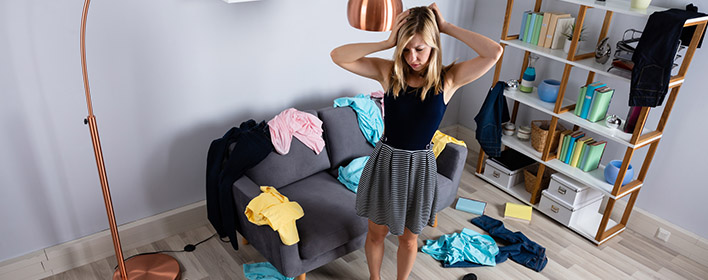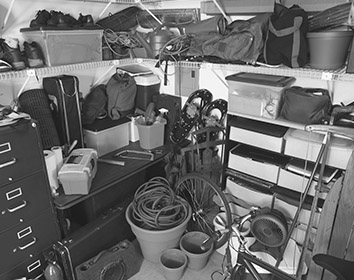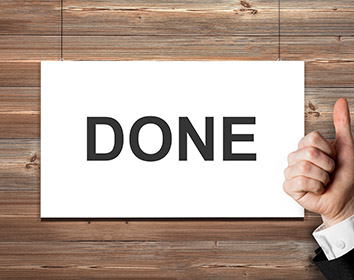
Categories Cleaning Room
Why Mess Causes Stress
Clutter can play a significant role in how we feel about our homes, our workplaces, and ourselves. Messy homes and work spaces leave us feeling anxious, helpless, and overwhelmed. Yet, rarely is clutter recognized as a significant source of stress in our lives.
 Why does mess lead to so much stress?
Why does mess lead to so much stress?
- Clutter bombards our minds with excessive stimuli (visual, olfactory, tactile), causing our senses to work overtime on stimuli that aren’t necessary or important.
- Clutter distracts us by drawing our attention away from what our focus should be on.
- Clutter makes it more difficult to relax, both physically and mentally.
- Clutter constantly signals to our brains that our work is never done.
- Clutter makes us anxious because we’re never sure what it’s going to take to get through to the bottom of the pile.
- Clutter creates feelings of guilt (“I should be more organized”) and embarrassment, especially when others unexpectedly drop by our homes or work spaces.
- Clutter inhibits creativity and productivity by invading the open spaces that allow most people to think, brain storm, and problem solve.
- Clutter frustrates us by preventing us from locating what we need quickly (e.g. files and paperwork lost in the “pile” or keys swallowed up by the clutter).
Fortunately, unlike other more commonly recognized sources of stress (e.g., our jobs, our relationships), clutter is one of the easiest life stressors to fix. Here are a few ideas:
- Tackle de-cluttering as a family. If clutter has invaded your entire house, don’t tackle the job alone. Get the whole family involved by starting with a room everyone uses and making each person responsible for a section. If you’re on your own, start with one area at a time and finish de-cluttering that area before moving on to another. This will give you a sense of accomplishment as you see your successes little by little.
- Create designated spaces for frequently used items and supplies so that you can quickly and easily find what you’re looking for when you need it. However, try to make these designated spaces “closed” spaces, such as drawers and cabinets. “Storing” things on open shelves or on top of your desk does not remove those visual stimuli that create stress and lessen the amount of open space that your mind “sees.”

- If you don’t use it, don’t want it, or don’t need it, get rid of it. You can toss it, recycle it, or donate it (one person’s trash is another person’s treasure), but don’t keep it. If you use it, but only rarely, store it in a box in the garage (or if it’s your office, in a high or low place) to leave easy-access space for things you use more often. Also, put a date on the box. With rare exceptions, if you haven’t opened the box in a year, whatever is inside is probably not something you need.
- When you take something out of its designated space to use it, put it back immediately after you’re finished with it. Sounds simple, but it actually takes practice and commitment.
- Create a pending folder. A pending folder helps you clear off your work space while at the same time provides you with a readily accessible folder to centralize and easily locate pending projects.
- Don’t let papers pile up. Random papers strewn everywhere can be Public Enemy #1 when it comes to stressful clutter. We’re inundated with mail, flyers, menus, memos, newspapers, and the like. The key is to be conscious of what you bring and what others bring into your spaces. Go through these papers as soon as you can, tossing what you don’t need and storing what is necessary in its proper place.
- De-clutter your primary work space before you leave it. It’s normal to pull things out while you’re working in a space, but make a habit of cleaning off your work space before you go. Not only will this give you a sense of closure when you leave, it will also make you feel good when you return to a nice, clean space.
- Make it fun! As you’re going about and cleaning things out, put on some of your favorite tunes. The more up-beat, the better! Not only will you enjoy the tunes, the time will pass faster and you’ll probably work faster than you would without the music.
